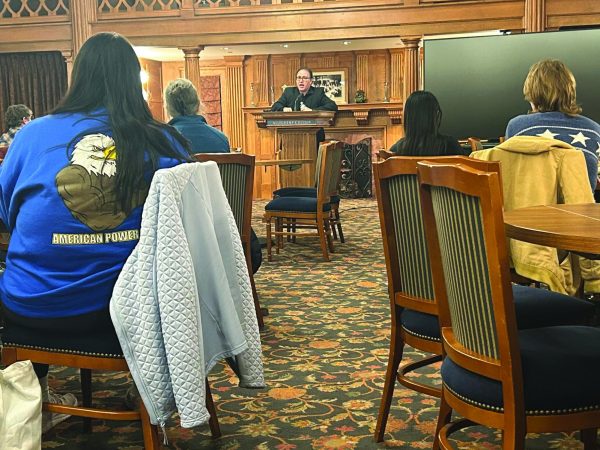Beyoncé’s halftime homage creates controversy
After a relatively lackluster opening by Coldplay and a few verses of Bruno Mars’ too-obvious “Uptown Funk,” the camera shifted left during the Super Bowl Halftime Show to reveal plumes of smoke rising behind a drumline of statuesque young black women. Clad in berets and black leather coats, the ladies were paying homage to the Black Panther Party on the 50th anniversary of its founding.
The women parted to reveal Beyoncé Knowles in all of her glory, surrounded, flanked, mobbed by dozens of women sporting a modern, sexual take on the uniform of the Black Panthers. After giving viewers everywhere a precious few moments to collect their thoughts, she began her latest song, “Formation,” an ode to southern black women encouraging them to embrace their beauty and heritage.
After a few seconds, she paused, placing her hands on her hips, flames intermittently shooting upward from the end zone, and graciously permitted us all to catch our breath. She then offered the camera a knowing look, one that expressed an intimate understanding of both her cultural impact and the sheer adoration of the crowd, resuming with (what else?) her usual choreography, rehearsed to perfection. Her outfit and the lyrics referenced Michael Jackson, she proclaimed that she loves her daughter’s afro, then she finally engaged in a dance-off with Bruno Mars, meeting him at the center of the stage and giving him a look that both sized him up and dressed him down, invited and challenged him.
This is the magic of Beyoncé. The unrivaled star power which has made her a living legend. And yet despite her nearly two decades of stardom, despite the hit songs and the films and the universal acclaim, Beyoncé is currently being lambasted for her message of black pride. This one occurrence of outspokenness, as Beyoncé is well-known for her silence on pressing political issues facing the black community, is currently being scrutinized by the public. “Fans,” upset with the singer for her choice to sing a politically-charged song, have resorted to burning her CDs, likening her to some kind of radical militant.
It can be argued, however, that this performance was not enough to quell the rumors that have dogged Beyoncé in recent years. While still the unquestioned pop star par excellence, her silence on political, social and cultural issues has become glaringly obvious, and as one of the most influential artists in the world today, she has a power which she is not using. She, possibly more than any other artist, has the ability to call global attention to problems. And while she, or at least her publicist, has given the world this tangible, beautiful, rhythmic demonstration of black pride, it is only fair that we ask, after years of abject silence, if she has done enough with this one performance.
This song, however, is a step in the right direction. Beyoncé, in years past, in spite of her being a black woman, has followed in the tradition of entertainers including Barbara McNair, Diahann Carroll and Lena Horne, artists who, while black, were expected to be racially neutered in order to be palatable to all audiences. And with “Formation,” Queen Bey has shattered this safe, silent image, proving her militancy, however mild, and her undeniable black pride.







